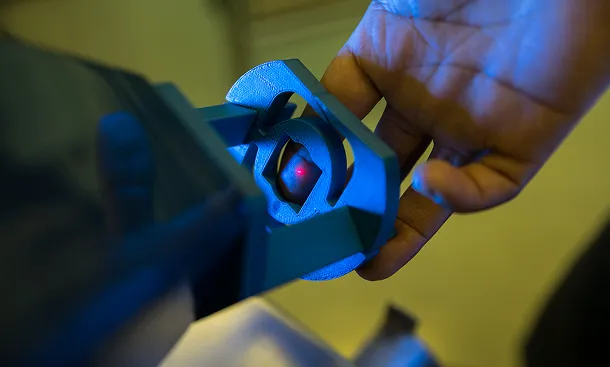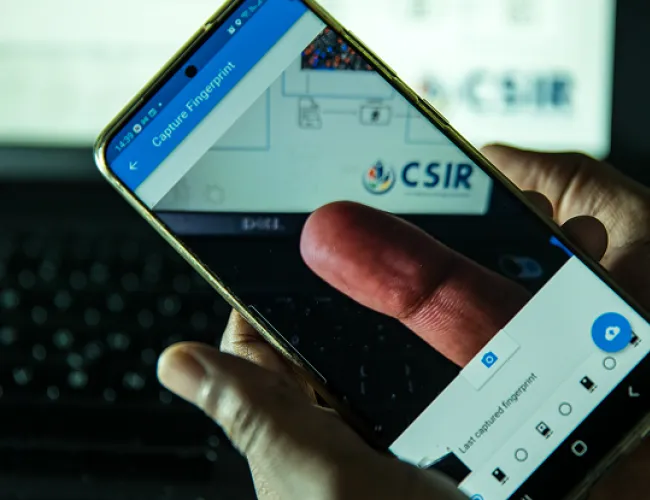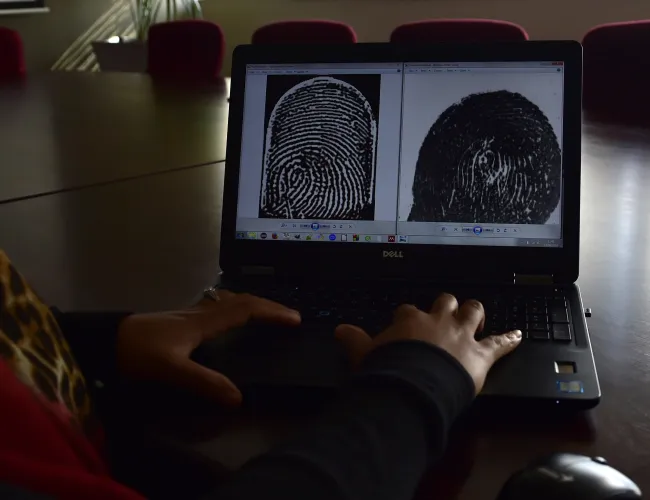Secure identity systems
We undertake research and development in identity management. We develop technologies used to authorise a myriad of socioeconomic transactions and authenticate individuals’ identities throughout their lifespan. We contribute to the ongoing development of self-sovereign identity in the country to improve service delivery, reduce fraud and corruption and enhance resource utilisation.

Contact information:
Highlights
Our capabilities
Our work focuses on developing identity authentication mechanisms for individuals, which are critical for service delivery, access to information and national security. Our capabilities are built on robust authentication technologies that support law enforcement in prosecuting criminals who steal identities and commit fraud, as well as in addressing insurgency threats. We have expertise in software development, systems engineering, machine learning, data science and analytics.


